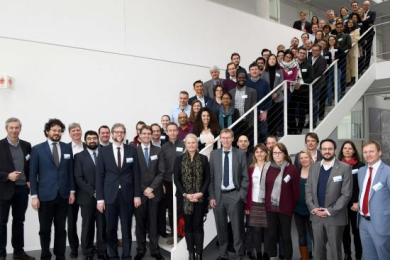The United Nations Office for Outer Space Affairs (UNOOSA), through its UN-SPIDER programme, attended the DLR (German Aerospace Center) Humanitarian Technology Days on 6 and 7 February at the DLR Earth Observation Centre in Oberpfaffenhofen, Germany.
DLR has conducted research on disaster management and civil security for many years, with humanitarian action in complicated working conditions and the need for technology support being at the forefront, hence the organization of such an event.
This workshop brought together humanitarian experts from UN, NGOs and relief organizations with DLR experts to jointly develop project ideas and possible roadmaps to improve technology support in crisis regions and disaster areas, in order to make humanitarian actions more effective.
The event consisted in a series of workshops, presentations, interactive sessions with a number of ad-hoc topics, guided tours of DLR labs and networking opportunities for humanitarian experts and DLR scientists.
The results of the gathering were the identification of knowledge and technology gaps and planned follow-up meetings between DLR and humanitarian actors, as well as the outcomes of the workshop being passed on to possible funding agencies and research donors for eventual dedicated research funds in this field.
At the event, the World Food Programme (WFP) and DLR signed an agreement to develop and implement techonologies for the "Zero Hunger" mission to strengthen their cooperation.

